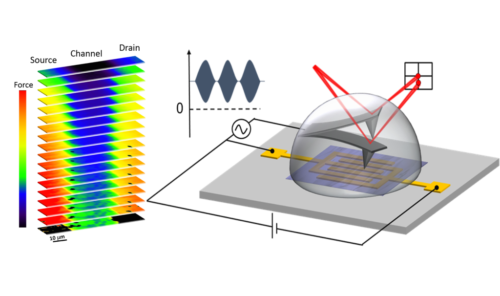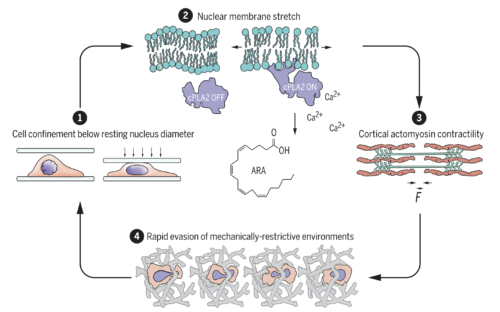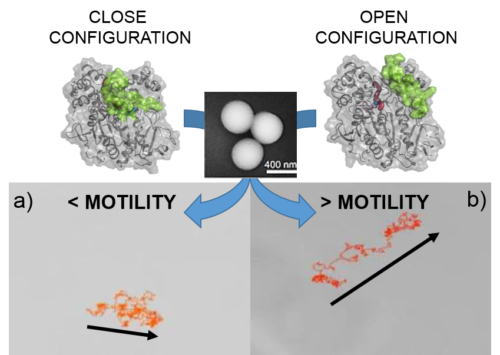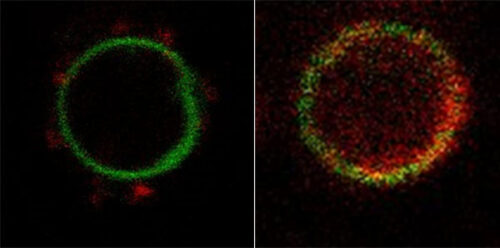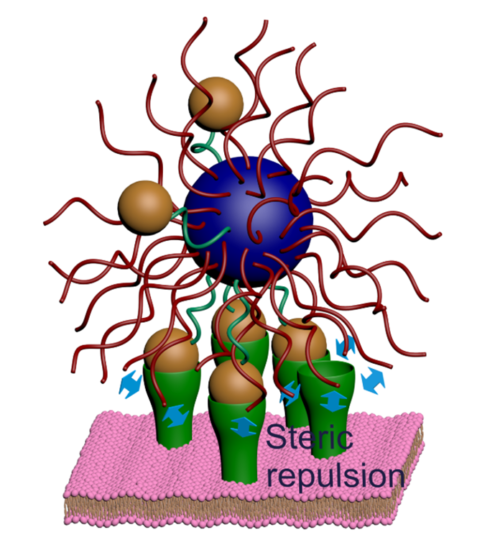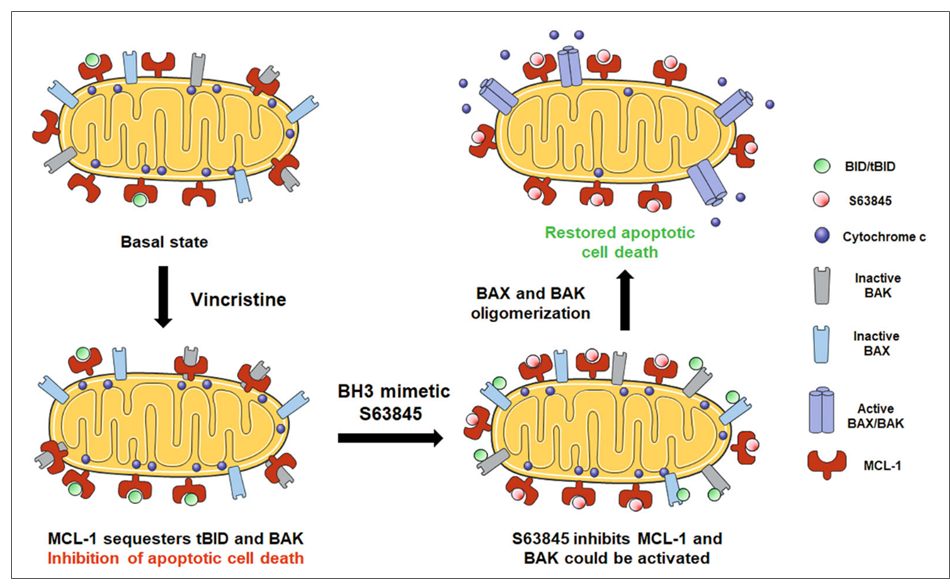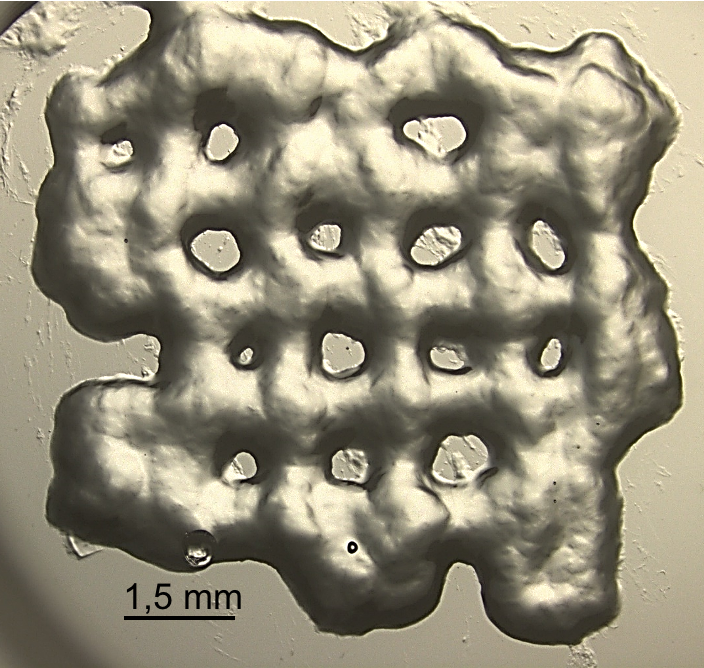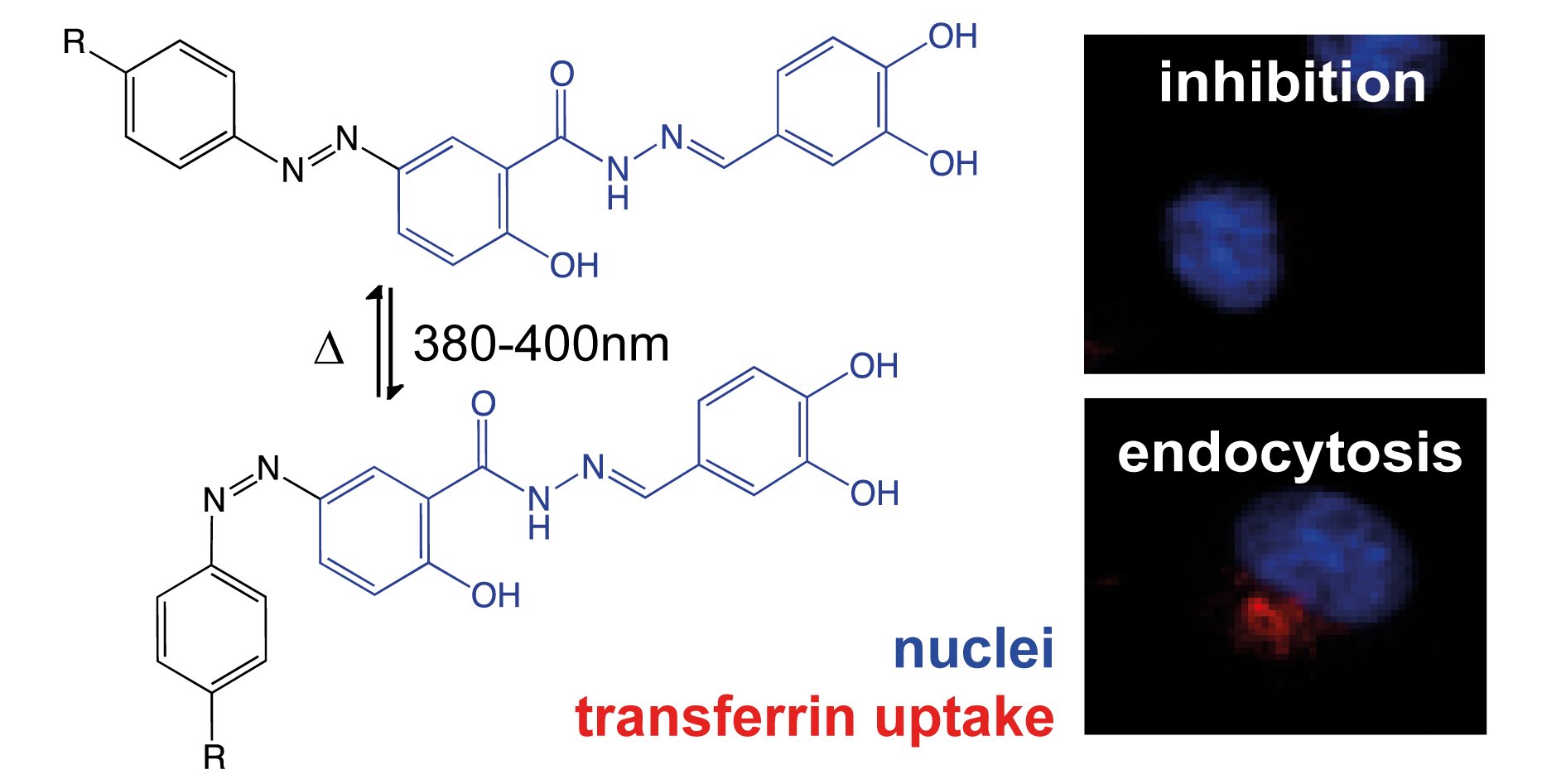Research news
Cells can detect the amount of space available and take decisions using their nucleus
A study published today in the journal Science shows that different cell types can use their nucleus—the cell’s stiffest and bulkiesnest organelle—to measure the level of confinement they are subjected to. These results are of particular interest for the study of cell migration, both in healthy and cancerous tissue. Marc Molina, current IBEC researcher, contributes to this article for his work done during his previous position at King’s College London
Controlling the speed of enzyme motors brings biomedical applications of nanorobots closer
A study by scientists at the Centro Nacional de Investigaciones Cardiovasculares (CNIC), the Universidad Complutense (UCM), Universidad de Girona (UdG), and the Institute for Bioengineering of Catalonia (IBEC), working together with other international centers, has overcome one of the key hurdles to the use of nanorobots powered by enzymes called lipases.
LipoBots: robust nanomotors for biomedical applications developed with encapsulation technology
Researchers at the Institute for Bioengineering of Catalonia (IBEC) and the Catalan Institute of Nanoscience and Nanotechnology (ICN2) have developed a new type of encapsulated enzyme nanomotors.
The called LipoBots, which could be used for medical applications. LipoBots are capable to self-propulsate and to retain their enzymatic functionality in conditions similar to those of the human stomach.
Range selectivity, a new concept that could lead to more efficient nanoparticle drug delivery
In a new study published in the scientific journal Nature Communications, researchers describe a new concept called “range selectivity”, explaining why biomimetic nanoparticles only bind to receptors when their density is within a precise range.
This finding could pave the way for the development of highly targeted therapies against a number of diseases.
New method could help to find the best treatment for a pediatric cancer
A study led by IBEC researchers from the Nanobioengineering group, uses a functional predictive biomarker to anticipate the effect of treatments against rhabdomyosarcoma, the most common soft-tissue cancer affecting childhood and adolescence.
This advance can help in predicting treatment efficiency thus, avoiding tumor resistance and decreasing undesired secondary effects.
3D printed hydrogels for cancer immunotherapy T-cell growth
The new 3D hydrogels provide high rates of cell proliferation, as they mimic lymph nodes, where T-cells reproduce in vivo. A new project, led by researchers from ICMAB and IBEC, and with the collaboration of VHIO and UIC, wants to transfer this technology to hospitals.
Cancer immunotherapy is based on using and strengthening the patient’s own immune system to recognize and fight tumor cells, without damaging healthy tissues.

